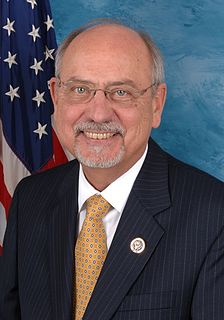A Quote by G. Edward Griffin
There is no time in American history in which there was more economic conflict between segments of the population than there was prior to the Civil War.
Related Quotes
In the middle of the nineteenth century, the United States embarked on a new relationship with death, entering into a civil war that proved bloodier than any other conflict in American history, a war that would presage the slaughter of World War I's Western Front and the global carnage of the twentieth century.
The intelligence community is so vast that more people have top secret clearance than live in Washington. The U.S. will spend more on the war in Afghanistan this year, adjusting for inflation, than we spent on the Revolutionary War, the War of 1812, the Mexican-American War, the Civil War and the Spanish-American War combined.
The casualties in the Civil War amount to more than all other wars - all other American wars combined. More people died in that war than World War II, World War I, Vietnam, etc. And that was a war for white supremacy. It was a war to erect a state in which the basis of it was the enslavement of black people.
What it targets is not something that's really looked at a lot in terms of the war. This is stuff that's off the beaten path in terms of what we think of every time you start a Civil War history or a Civil War presentation. It's usually about the military and the soldiers and all that stuff. And this is not. It's the backdrop to a place and a time and circumstances that didn't have anything to do with that.
Whether the struggle was between English merchants and the American colonies, pre Civil War northern manufacturers vs. southern slave holders, or American grain farmers and auto manufacturers seeking advantage in the Mexican agriculture and labor markets in the 1990s, U.S. policy has reflected the economic clash of interests of the day.
I went to live in Barcelona in 1975, when I was twenty. Even before I went there, I knew more about the Spanish Civil War than I did about the Irish Civil War. I liked Barcelona, and then I grew to like a place in the Catalan Pyrenees called the Pillars, especially an area between the village of Flavors and the high mountains around it.
I worry that I may have overstated the impact of Civil War on the utopians. By the time the Civil War comes, most of the communities were quite separated from the wider American society. Their rhetoric is still about transforming the world, but they're not having that much traffic with their neighbors.



































